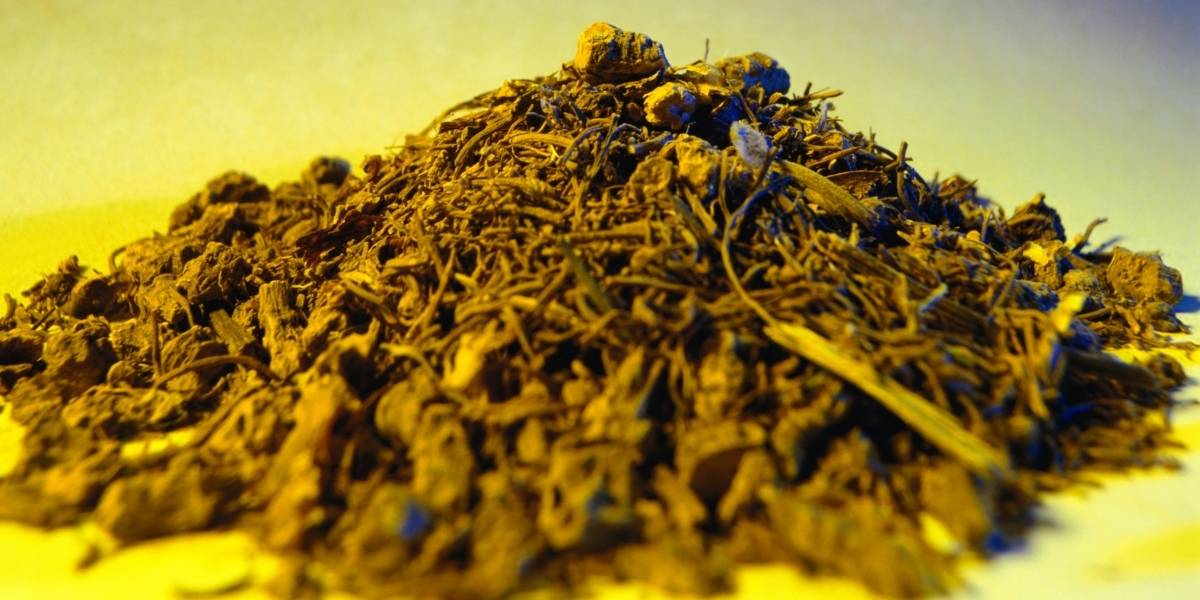PCOS, or polycystic ovarian syndrome, is an endocrine disorder that affects millions of women worldwide. While there is no cure for PCOS, symptoms can be managed through various treatment options. One promising option is Berberine, a plant alkaloid that has gained attention for its potential to support women with PCOS.
So, is Berberine for PCOS a viable treatment option? Will this make living with PCOS more manageable? Read on to know more!
Table of Contents
What is Berberine? Where does it come from?
Berberine isn’t a single plant or herb. It’s an all-natural compound that’s commonly found in the bark, stems, roots, and rhizomes of many different plants, such as:
| Berberine source (common name) | Scientific name |
| Barberry | Berberis vulgaris |
| Tree turmeric | Berberis aristata |
| Oregon grape | Mahonia aquifolium |
| Goldenseal | Hydrastis canadensis |
| Yellowroot | Xanthorhiza simplicissima |
| Amur cork tree | Phellodendron amurense |
| Chinese goldthread | Coptis chinensis |
| Prickly poppy | Argemone Mexicana |
| Californian poppy | Eschscholzia californica |
What is Berberine used for?
Berberine’s special healing powers may have been a recent discovery in modern science, but it’s actually been in use for millennia in traditional Chinese and Ayurvedic medicine. Historically, Berberine’s main claim to fame was its antipathogenic properties. It was mainly used to treat wounds and infections brought about by bacteria, viruses, fungi, and other pathogens (1).
Upon discovery of its hypoglycemic properties, Berberine’s modern usage was extended to PCOS, diabetes, and other conditions resulting from high blood sugar and insulin resistance.

How does Berberine for PCOS work?
Women with PCOS typically suffer from poor insulin sensitivity or insulin resistance (2). This is where Berberine’s hypoglycemic properties come into play.
Berberine promotes insulin sensitivity
Berberine has insulin-sensitizing properties, that is, it helps improve insulin sensitivity and reduce blood glucose levels. Insulin resistance occurs when cells no longer respond to insulin, the hormone that helps regulate blood sugar levels.
When insulin can no longer do its job properly, it paves the way for insulin and blood sugar levels to spike up. If left untreated, consistently high insulin levels may increase the risk for various health issues, including type II diabetes, heart disease, blindness, kidney failure, and yes, PCOS (3).
That said, Berberine lowers insulin resistance by activating the AMPK enzyme or the adenosine monophosphate-activated protein kinase. AMPK is known as the “energy-burning master switch” because activating it helps the body with fat and glucose metabolism (4). But that’s not all, even if AMPK is blocked, it can still lower blood sugar levels by stimulating enzymes that break down glucose (5).
Related article: How To Increase Insulin Sensitivity Naturally
Berberine and testosterone levels
With insulin resistance comes skewed hormone levels. Testosterone levels go up and estrogen levels go down (women with PCOS typically have high testosterone levels). This is why male characteristics often present in women with PCOS, such as hirsutism, irregular or loss of menses, excessive acne, and female pattern baldness.
One study found that Berberine not only improves insulin function, but it also helps lower testosterone levels in women, thereby helping get rid of male-like characteristics in PCOS patients (6). According to another study, Berberine can do this by reducing testosterone production in the ovary’s theca cells (7).

Berberine weightloss for PCOS
Not all PCOS women are overweight or obese, but many are. For those who unfortunately suffer from excess weight, weight management is often the recommended first line of action. However, many women find it very difficult to do so, more so than women without PCOS (8).
Studies have shown that Berberine helps PCOS women with weight loss. It helps redistribute adipose tissue (a.k.a. body fat) and reduce visceral adipose tissue (9). Obese subjects given 500mg of Berberine 3x a day for 12 weeks showed a significant reduction in weight (average of 5 pounds!). Moreover, Berberine also significantly reduced triglyceride and cholesterol levels in the subjects (10).
Here’s how our Max Strength Berberine supplement helped our customers with their weight loss journey!
| Amazon customer #1 | Since I started the Berberine on a regular schedule I have seen my numbers drop almost 50 points. I’m not as hungry all of the time and have seen a weight loss. |
| Amazon customer #2 | I noticed I have lost weight taking this stuff and no bad side effects either! |
| Amazon customer #3 | Have been taking product for a couple months and it has helped suppress my appetite and stabilize my weight. |
Berberine and fertility
A great majority of women with PCOS find it difficult to get pregnant. This is due to irregular menses, or in some cases, the total lack thereof caused by hormonal imbalance (high testosterone / low estrogen).
One study found that Berberine helped improve women’s ovulation rate per cycle, overall fertility, and live birth rates (9). Even anovulatory (non-ovulating) PCOS patients benefited from Berberine – it helped improve their menstrual pattern and ovulation rate too (11).

Beyond PCOS: Other benefits of Berberine
Berberine’s benefits go beyond PCOS. We’ve written an in-depth article on other research-backed Berberine benefits, but to give you an idea, here’s a summary:
- It may help manage type 2 diabetes symptoms
- It may reduce cholesterol levels
- Berberine may help reduce the risk of heart disease
- Berberine may help with candida
- It may help with small intestine bacterial overgrowth
- It may help with UTI and other infections
- Berberine may help with acne
- It may even help slow down or prevent Alzheimer’s disease
- Berberine may help with depression
- Berberine supports optimal lung health
- It may help with non-alcoholic fatty liver disease
- It may help with arthritis and joint health
- Berberine can help boost the immune system
Should you take Berberine supplements for PCOS?
Yes, you should! Taking Berberine supplements is far more convenient than consuming the various Berberine plant sources as tea. High-quality Berberine supplements are measured in exact doses, so you know exactly how much of the plant alkaloid you’re getting with every serving. That said, in this section, we’ll list down relevant Berberine supplement info:
Dosage
The scientifically recommended dosage for Berberine for PCOS is to take 2-3 500mg capsules per day. That’s 1x capsule with a carb-containing meal. So, that’s about 1000mg to 1500mg per day. This dosage is enough for most PCOS patients to benefit from Berberine’s insulin-sensitizing action (6).
Berberine supplement ingredients
Our Intelligent Labs Berberine HCL supplement is made with 100% natural Berberine derived from plants grown in both India and China.

How long does it take to work? And how long should I take Berberine?
As with any dietary supplement, it is important to speak with your doctor before taking Berberine. They would know your medical background and can give you better advice regarding how long you should take Berberine.
But since it can take up to 3 weeks or a month of 2-3 Berberine capsules daily before you see any results, we recommend you at least supplement for this duration. As for long-term safety, no studies thus far have shown adverse effects when taking Berberine long-term. But it’s still better to err on the side of caution, so do speak with your doctor about this.
Possible side effects of Berberine
In the first few weeks, you may experience gastrointestinal side effects, such as abdominal pain, diarrhea, flatulence, or constipation. To reduce the chance of side effects, you may take 1000mg (equivalent to 2 capsules) daily for the first week to let your body adapt to the compound. Then, add another 500mg capsule to your routine in the second week. Take note, however, that when using Berberine with some other medication, the side effects may be more pronounced.
Related article: 5 Natural Supplements That Help With PCOS
Conclusion
While certain treatments have proven effective against PCOS and diabetes, their side effects can be undesirable. Thankfully, when it comes to natural alternatives, Berberine is a top option.

